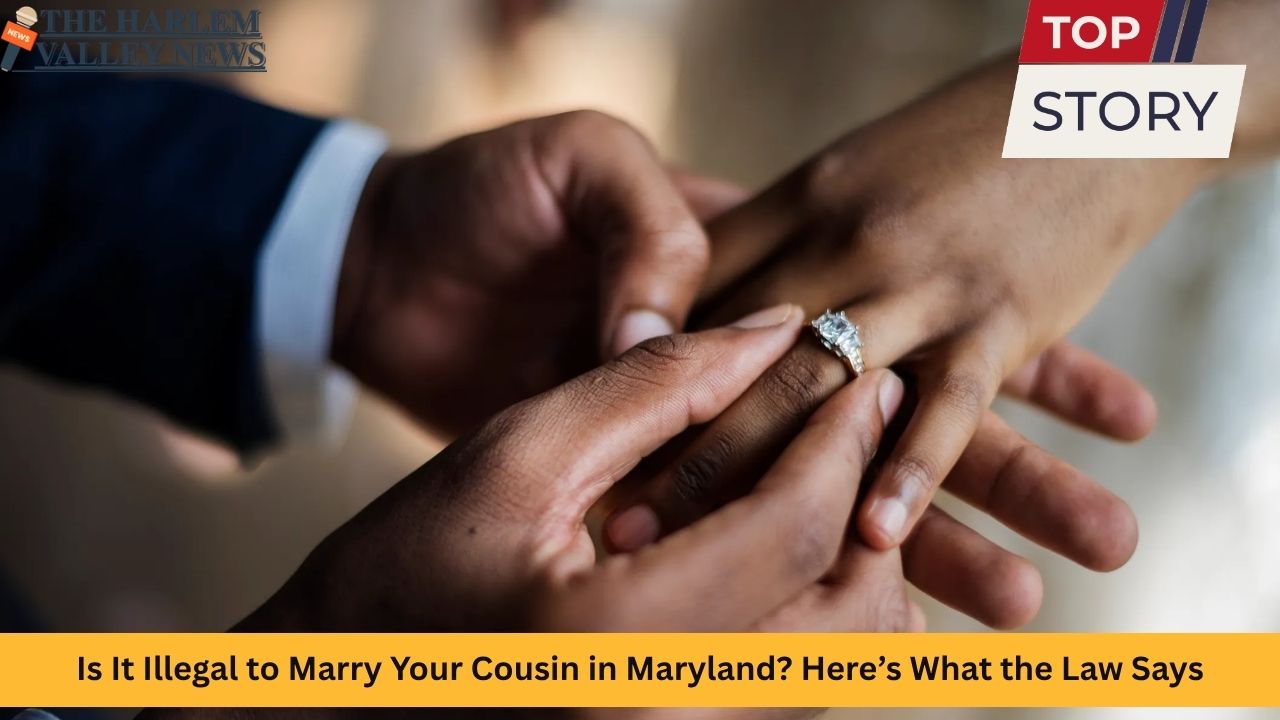Marriage laws can be complex, especially when it comes to questions involving family relationships. For many in Tennessee, the question of whether cousins can marry is both personal and controversial. This article dives deep into the current legal landscape in Tennessee, exploring the history, new policy changes, social context, and what it all means for residents across the state—from the heart of Memphis to the hills of Johnson City and everywhere in between.
The Legal Landscape of Cousin Marriages in Tennessee
Historical Context: How Laws Have Changed
Across American history, marriage between cousins has fluctuated between acceptance and prohibition. In the early days of Tennessee’s statehood, first cousins could legally marry, as was common in many parts of the United States and Europe. This remained unchanged for decades, with Tennessee among a minority of states that did not ban cousin marriage outright.
Through the 20th century, however, changing social attitudes and evolving scientific understanding of genetics spurred many states to introduce bans. Until recently, Tennessee still allowed first cousins to marry. This positioned the state alongside others like Alabama and California, offering legal recognition to marriages between first cousins.
The New Law: Marriage Ban for First Cousins
In 2024, Tennessee lawmakers approved a bill banning marriage between first cousins. The bill, which passed with overwhelming support in both the House and Senate, reflects a significant shift in Tennessee policy, following trends seen in states such as Texas and Kentucky. The change came after heated debates among lawmakers, with some arguing for exceptions under certain conditions, such as mandatory genetic counseling, but the bill ultimately took a clear stance: first cousin marriages are now prohibited under state law.
Residents of Tennessee cities—whether in Nashville, Chattanooga, Knoxville, or smaller communities like Franklin and Murfreesboro—must now comply with this prohibition. This law applies to all Tennessee counties and is enforced statewide.
Current Tennessee Marriage Law: Prohibited Degrees of Kinship
Tennessee state law defines very specifically which types of family relationships are considered too close for marriage. Under present statutes:
-
Marriages between siblings, parents and children, and grandparents and grandchildren are prohibited.
-
The new law explicitly adds first cousins to this list, making it illegal for first cousins to marry within Tennessee’s borders.
-
Marriages between second cousins or more distant relatives are still allowed under state law.
This policy applies regardless of whether the relationship is by blood or adoption.
Local Impacts: What This Means for Tennessee Cities
Memphis
Known for its rich blues heritage and Mississippi River culture, Memphis is one of Tennessee’s most diverse cities. In Memphis, families with ties across the southern region have sometimes found cousin marriage to be a historic family tradition. With the new law, these families must now abide by the updated marriage ban.
Nashville
As the state capital and a center for music and education, Nashville draws people from across the country. Residents planning to marry a cousin now face a clear legal impediment and must either forego the union or consider marrying in another state where cousin marriage is still permitted.
Knoxville and Chattanooga
These two cities, nestled in Eastern Tennessee, host vibrant communities with robust college populations. Students and local families should be aware of the updated law, as ignorance of the statute is not considered a defense should they seek a marriage license as first cousins.
Clarksville, Franklin, and Murfreesboro
Suburban communities surrounding larger urban centers, such as Clarksville, Franklin, and Murfreesboro, are not exempt from the law. County clerks across Tennessee uphold the statute uniformly, ensuring the new marriage ban is honored state-wide.
National Context: How Common Is Cousin Marriage in the United States?
Cousin marriage is relatively rare in the United States. Estimates suggest that approximately 0.2% of all marriages nationwide are between second cousins or closer. This is a small fraction compared to many countries globally, where cousin marriages are more accepted due to cultural, religious, or social traditions.
States vary considerably in their approaches:
-
Some states, such as California, New York, and Colorado, continue to allow first cousins to marry without restriction.
-
Others, including Kentucky, Nevada, and now Tennessee, prohibit such unions.
-
Several states make exceptions for older couples or those who undergo genetic counseling.
With Tennessee’s new law, the number of states banning or restricting cousin marriage has grown, leaving fewer places where these unions remain legal.
Reasons for the Ban: Science, Social Attitudes, and Politics
Genetic and Health Concerns
A frequent justification for banning cousin marriage is concern over potential health risks for offspring. Marriages between close relatives can increase the likelihood of certain genetic disorders. However, recent scientific studies indicate that the absolute risk is lower than traditionally believed, especially for first-cousin unions.
Despite these findings, concerns over health outcomes for children remain a major influence on policy. Lawmakers in Tennessee cited these issues when debating and passing the ban.
Shifting Social Norms
Social perceptions around cousin marriage have changed dramatically over the last century. Once considered acceptable or even strategic for keeping property and wealth within families, cousin marriages now carry significant stigma in many communities.
Much of the American public views cousin marriage unfavorably, and advocacy for bans has grown in some regions, supported by evolving cultural norms.
Political Climate
Tennessee’s legislature, reflecting the priorities of its electorate, aligned with other socially conservative states by moving to ban cousin marriage. Lawmakers from cities like Jackson, Cookeville, and Kingsport echoed constituents’ preferences for maintaining stricter boundaries on acceptable marriages.
Debates also touched on cultural autonomy, with some expressing belief that the decision should rest with families, not the state. Nonetheless, the majority opinion prevailed.
Legal Details: What Happens to Existing Cousin Marriages?
A critical question for many families is the status of cousin marriages that occurred before the new law. Tennessee law generally does not retroactively void valid marriages that were legal when formed. Therefore, cousin marriages conducted and recognized prior to the legal change remain valid in Tennessee.
Couples considering moving to Tennessee who are married as cousins elsewhere may face a more complicated situation:
-
Tennessee generally recognizes marriages validly performed in other states unless the marriage clearly violates local “public policy.”
-
Whether Tennessee recognizes out-of-state cousin marriages performed after the legal change is subject to evolving judicial interpretation.
Prospective couples are advised to consult legal counsel to navigate these complexities.
Public Reaction: Cultural, Religious, and Family Perspectives
Family Stories and Traditions
Family traditions involving cousin marriage, especially in rural or multi-generational communities, are still present across Tennessee. For example, several families in rural counties outside Memphis and Chattanooga describe long family histories featuring marriages between cousins, often tied to property, inheritance, or religious practice.
The new legal changes have sparked conversations—sometimes heated ones—among extended families, challenging centuries-old customs.
Religious Views
Mainline Christian churches in Tennessee, from Baptist congregations in Knoxville to Methodist churches in Nashville, typically discourage cousin marriages. Islamic and Jewish traditions have diverse perspectives, with some interpretations permitting cousin unions.
For faith communities that value the autonomy of religious marriage ceremonies, the change in state law may lead to friction between religious practice and legal recognition.
Alternatives for Prospective Couples
Marrying in Another State
Couples wishing to marry a first cousin may travel to one of the states where such unions remain legal. Neighboring states with differing laws can be an option, though residency or waiting period requirements may apply. It is important to verify whether Tennessee will recognize such marriages upon a couple’s return.
Considering Distant Relatives
Tennessee’s new law is specific to first cousins. Marriage between more distant relatives—such as second cousins or “cousins once removed”—remains legal. Understanding precise family relationships is essential for those considering union under state law.
Statistics: Marriage Trends in Tennessee
While cousin marriage is rare, broader marriage trends in Tennessee offer context:
-
Tennessee’s marriage rate has generally mirrored national averages, with urban centers like Nashville, Memphis, and Knoxville experiencing the highest numbers of marriage licenses issued annually.
-
The majority of marriages in Tennessee involve unrelated individuals, and the ban on cousin marriage is not expected to significantly impact aggregate marriage rates in cities like Clarksville or Chattanooga.
Other Recent Changes: Covenant Marriage and Divorce Rules
In tandem with the cousin marriage ban, Tennessee has introduced new types of marriage for couples who wish to make a deeper legal commitment. The “Covenant Marriage Act,” effective in 2025, allows couples to opt for a form of marriage with stricter divorce requirements.
Couples in places like Johnson City and Brentwood seeking a covenant marriage must undergo counseling and acknowledge their understanding that the marriage is intended as a lifelong union. Divorce is only permitted under specific conditions, such as proven adultery or serious crimes.
Comparison with Other States
A look at how Tennessee compares to other states reveals a patchwork of laws:
| State | First Cousin Marriage | Notable Restrictions |
|---|---|---|
| Alabama | Allowed | None |
| Kentucky | Prohibited | No exceptions |
| Georgia | Allowed | None |
| Arkansas | Prohibited | No exceptions |
| North Carolina | Allowed (exceptions) | Not for double first cousins |
| Texas | Prohibited | Since 2005 |
| Tennessee | Prohibited | As of 2024 |
| California | Allowed | None |
This diverse legal framework means travelers, new residents, and those marrying across state lines must pay close attention to local statutes.
Frequently Asked Questions about Cousin Marriage in Tennessee
Can first cousins get married in Tennessee?
No. As of 2024, it is illegal for first cousins to marry in Tennessee under state law.
Are marriages between second cousins allowed?
Yes. Marriages between second cousins or more distant relatives remain legal.
What about cousin marriages performed in other states?
Cousin marriages legally performed in other states prior to the new law will generally be recognized in Tennessee. Those performed after the law change are subject to review under the state’s public policy exceptions.
Was there much opposition to the new law?
There was some debate in the legislature, with a few lawmakers advocating for genetic counseling exceptions or upholding family tradition. Ultimately, however, strong majorities in both legislative chambers approved the prohibition.
The Future: Will These Laws Change Again?
American marriage law is dynamic, shaped by cultural shifts, evolving science, and shifting politics. While there are currently no signs of Tennessee repealing the cousin marriage ban, future legislative sessions could revisit the issue as societal norms evolve or new scientific data emerges.
Key Takeaways for Tennessee Residents
-
First cousin marriage is now illegal in Tennessee.
-
The law applies throughout the state, including all cities and counties.
-
Existing cousin marriages conducted before the law’s passage remain valid.
-
Residents seeking to marry a cousin can explore legal alternatives, including marrying in other states or considering a more distant relative.
-
Tennessee’s marriage law now closely aligns with other Southern states that have enacted similar restrictions.
Conclusion
Changes to Tennessee’s marriage laws reflect broader shifts in societal attitudes toward cousin marriage, as well as a desire to clarify and standardize the rules across state lines. For individuals and families considering marriage in Tennessee—whether in bustling Nashville, historical Memphis, scenic Chattanooga, or tranquil towns like Paris and Tullahoma—the state’s position is now clear: first cousin marriage is prohibited.
These legal changes underscore the importance of understanding not just the law, but the social and cultural context in which these decisions are made. For Tennesseans, this means navigating a landscape shaped by history, science, and evolving values that will undoubtedly continue to shift in the years ahead.












Leave a Reply